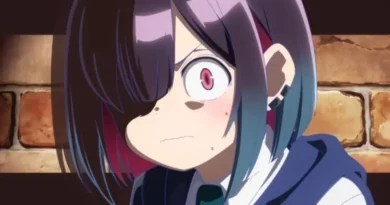Fans Launch Anti-Censorship Campaign for Adult Games

A wave of censorship is hitting adult games hard, and fans are now fighting back. After months of pressure on Japanese platforms like DLSite, FANZA, and Pixiv, Visa and Mastercard are now being blamed for stricter policies adopted by major Western storefronts like Steam and Itch.io.
Steam recently updated its content policy to ban games that “violate payment processor guidelines.” Soon after, several adult titles were delisted or hidden. Itch.io also removed NSFW game indexing and is reportedly reviewing its entire adult section. The backlash was swift, sparking an anti-censorship campaign for adult games targeting the companies behind the scenes: Visa and Mastercard.
Fans Launch Anti-Censorship Campaign for Adult Games
The campaign, still in its early stages, is already mobilizing thousands online. Platforms like Reddit and Bluesky have become coordination hubs. Activists are encouraging users to email or call Visa and Mastercard customer support directly, hoping to raise awareness—and cause enough disruption to get a response.

According to multiple Reddit threads, some users claim that support agents are already familiar with the issue due to a surge of calls. One popular post with over 17,000 upvotes said:
“Emails can be ignored, but long wait lines that prevent other customers from getting through are very effective.”
Participants are staying on hold for hours, using callback systems to jam parallel queues, and sending emails not just to support—but to executives. Most replies have been automated, claiming that the companies merely follow local laws, do not moderate merchant content, and apply stricter scrutiny only when potential illegal activity is involved.
On Bluesky and Imgur, users are sharing call scripts, email templates, and guides on how to be persistent yet polite. One dedicated site even compiles all materials needed to participate in the campaign.

While many involved are genuinely passionate about protecting adult content creators and consumers, others are taking a more performative approach—posing as “confused customers” asking why they can’t buy their favorite games anymore.
Despite the rising tension, campaigners emphasize staying respectful to frontline staff and focusing pressure on the executives and decision-makers. As one user put it:
“We need to be taken seriously if we want this to be reversed.”
The Group Behind the Censorship
Digging deeper, fans discovered that Australian activist organization Collective Shout is largely responsible for lobbying payment processors. The group has a long history of campaigning against any media—fictional or not—that portrays sexual violence against women. Their recent efforts have led to over 500 adult games being removed from Steam, according to their own statements.

Although Collective Shout claims to only target games depicting rape or child abuse, their broader agenda seems more aggressive. In the past, they’ve demanded bans on games like Detroit: Become Human and GTA V for “promoting violence against women.” Meanwhile, they publicly supported Netflix’s controversial film Cuties, which received criticism for sexualizing minors—something many fans see as deeply hypocritical.
Itch.io, reacting to this pressure, seems to have taken a blanket approach, delisting even LGBTQ+ adult titles as it re-evaluates its content guidelines.
Now, Collective Shout has set its sights on banning all pornographic content from Twitter/X, meaning their efforts may soon impact all adult artists, regardless of whether their content involves loli, yaoi, Western characters, or anything else.

Critics of this censorship wave point out that fictional games and media have become scapegoats in a world that has far more pressing real-world issues. As one user sarcastically noted:
“The world was a better place before anime and games existed. Just world wars, civil unrest, and actual violence—no fiction to blame.”



